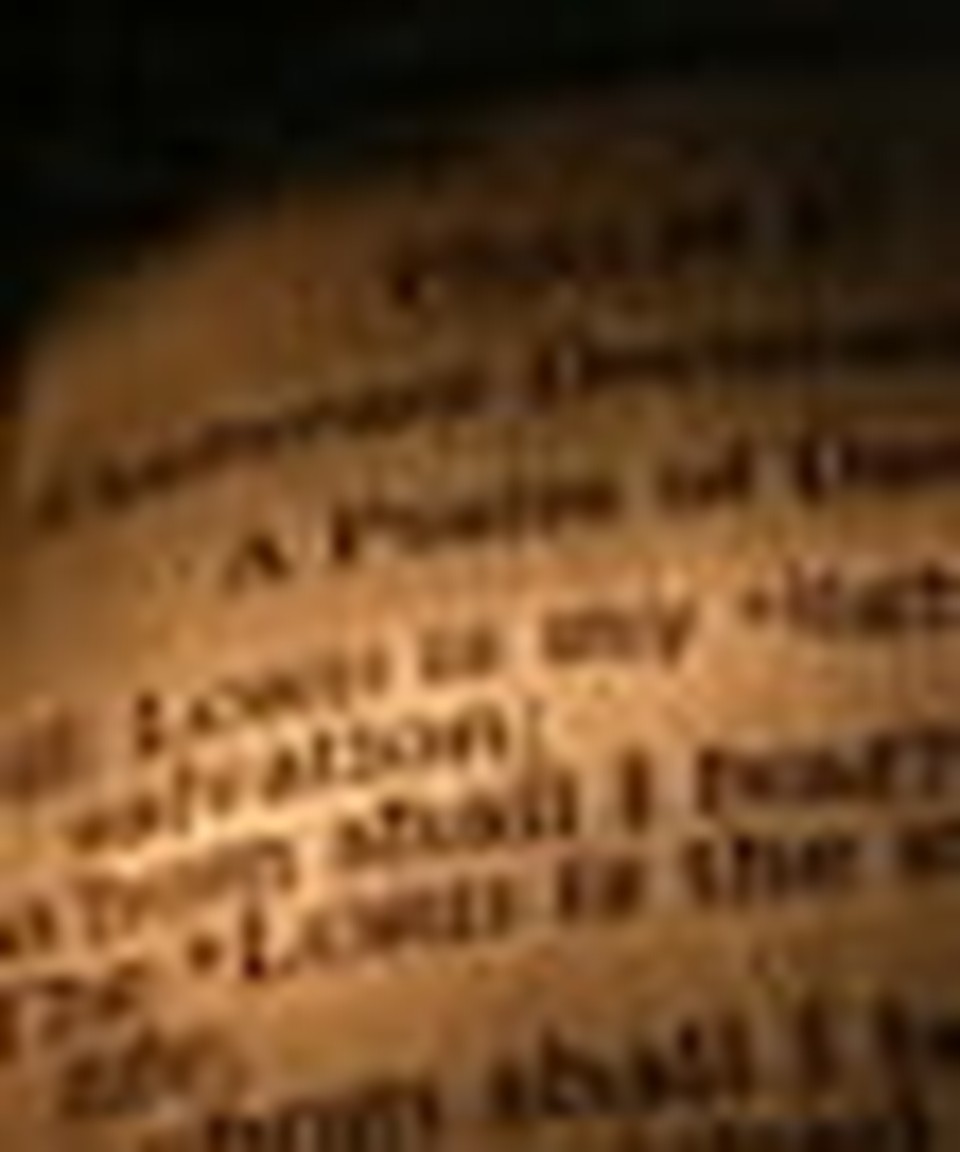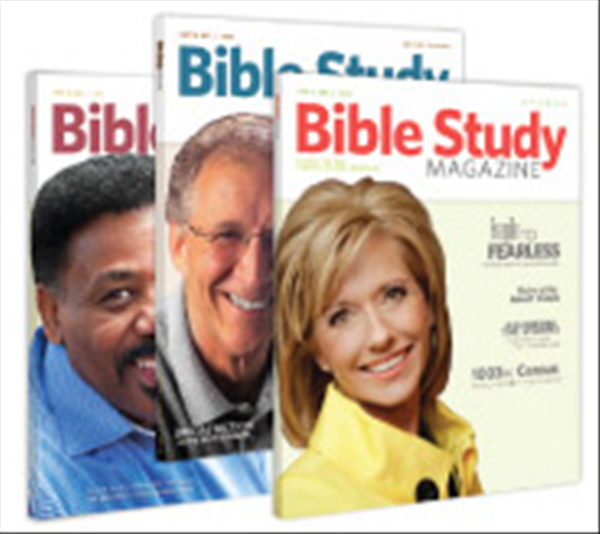Matt Chandler's Bible Study 101

“Where the Word of God goes out, there’s always a response,” says Matt Chandler, Lead Pastor of The Village Church in Highland Village, Texas. “There’s an immediate response to the Word of God and then there’s a continuing response. The Scriptures are primary, but you’ve got to build on them in expectation of (and accountability for) their application.” For Chandler, 35, Scripture must be balanced with practical application because a church’s emotive response is driven by its theological framework.
Matt Chandler preaches a reliance on God’s Word with passion because he wants his congregation to believe it. After arriving at First Baptist Church of Highland Village in 2002—renamed The Village Church—Chandler was surprised by the congregation’s lack of interest in the Bible. So, he focused his efforts on raising people’s affection for the Bible. Since spotlighting Bible study in 2002, the congregation has grown from around 200 attendees to about 6,000 across its three campuses.
Village Church’s growth is rooted in Matt’s, and subsequently the church’s, priorities. Whenever Chandler is asked, “What books do you recommend for pastors?” He responds, “The Bible. I understand the need for books on leadership, theology and history. My hope is that you would feast on the Scriptures, feel the angst and awe and be overwhelmed by the gospel of our great God and King. This book is life-changing and sufficient.” His priorities are clear. And they begin with his personal Bible study.
Scripting Bible Study
Chandler’s personal time in the Bible is scripted. “Every morning I get up and follow a guide,” he says. “I read through the Scriptures—just the text, no devotionals. I found my Bible reading plan online, downloaded it, and put it into an Excel program. I just check off each reading when I’ve done it.” This plan keeps Chandler focused on the overall theology of the Bible and doesn’t give him the wiggle room to follow his own whims, which could steer him off course. “You aren’t reading through the whole Bible in a year, but you’re getting a very detailed overview of it.”
Chandler suggests each person find a reading plan that fills in the gaps of their own study weaknesses. His default is focusing on specific passages in a biblical book, and not the meta-narrative (or grand story). “I don’t naturally think of the meta-narrative,” he says. “But in my reading plan, I am getting big chunks out of every book.” Focusing on larger sections of the Bible changes his focus to God’s grand story: “I need a little help on that,” he admits.
Bible Study First; Sermon Prep Second
To prepare for weekend services, Chandler clears his schedule on Tuesdays and Thursdays. His Tuesday is filled with biblical interpretation. He tackles the Greek; he wrestles the Hebrew. “I’m trying to figure out context,” he says. “On Tuesdays, I’m just kind of prayerfully working through a biblical text. I tend to preach through books in my Bible study and then every once in a while, when I’ve got to get to the bottom of a topic, I’ll deliver extra topical sermons. But I primarily study and preach through a book.”
Thursdays are spent turning theological knowledge into real-life application: He tosses in illustrations, transitions and often the exact words he will use in a sermon. Chandler says that this style can fit anyone: “Pure textual study mixed with real-life meaning is the perfect blend of theology and application.” This mixture provides Chandler with the “vision” his congregation needs.
Instead of relying on himself to come up with that vision, he just follows the lead of the Bible. “The reason I enjoy studying books of the Bible is because I don’t have to ask, ‘How do I creatively communicate this?’ ” He explains, “I just work on what follows next and that focuses me on things that I wouldn’t naturally think to address, or would naturally want to address.” Chandler also suggests this method for private study, acknowledging that at any moment a topic or idea can be further explored, but that the biblical text needs to be our primary focus and guide.
In this vein, Chandler regularly challenges people to make sure they are reading both the Old and New Testament. “You need them both,” he says. “You better understand each testament by understanding them together. By not covering the entirety of the Scriptures, you can’t even begin to fathom the entirety of God.”
Bible Study in the Pulpit and in the Family Room
Chandler does not just deliver a sermon; he studies the Bible in front of a live congregation. Because Chandler primarily goes through the Bible one book at a time, his congregation knows where he is going. They each read the text. Later, in small groups in their family rooms, they have an opportunity to offer their thoughts and ask questions. The groups discuss the weekend’s sermon and are given a Bible reading list for further study.
The Village Church creates what Chandler calls “communal beauty” via digital methods as well. By posting “Fridays with Matt” on his church blog, Chandler does not just prepare for a Sunday; he encourages his congregation to prepare. He suggests they read the text and be searching for God’s grand narrative. The church has a sermon podcast and has created dvds for its small group curriculum. The first dvd they produced was a six-hour practical teaching through the book of Philippians. “It’s just exegetically walking through the text in twelve, 30-minute sections,” Chandler says. “People can do that at home by themselves.”
Chandler wants to get useful Bible study tips into the hands of his churchgoers. “They’re hearing me say, ‘You better be in the Word. You’ve got to be in the Scriptures.’ ” He backs that up with available tools. The Village Church Web site (TheVillageChurch.net) also includes Chandler’s curriculum “Bible Study 101” and “Bible Study 201.” “Bible Study 101” is about how to read the Scriptures every day. “Bible Study 201” is the next step: how to interpret the Scriptures.
Unapologetic Bible Study
Eight years into Chandler’s ministry at The Village Church, Bible study is the focus. “We’re going to unapologetically believe the Bible,” says Chandler. “And we’re going to unapologetically preach it and proclaim it.” Chandler wants the Bible to be at the center of his church and the family rooms of his church members. He insists it be in their genes.
“At the end of the day, we don’t want to pool ignorance,” says Chandler. “We want to guide people through what passages we get into. And then (after detailed study of the Bible in small groups), we do heavy application. The last question of our small group meetings is always the same: ‘What needs to change about your life in light of these truths and how can the group hold you accountable for that?’ Everyone has to answer that question leaving group every week; every time they meet.”
For Chandler, Bible study then becomes what he calls a “beautiful circle of people learning the Word, working to apply it, and use it.” This is what enables application. It “raises the affections of people toward the Bible” with the goal of personal growth.
“Educating the laity is our only real shot at beating indifference,” says Chandler. “You can’t pursue God well without the Scriptures.”
Bible Study 101
Chandler’s main piece of Bible study advice: “Don’t read the Bible like another book.” To keep you from doing so, here are the highlights from Chandler’s “Bible Study 101”:
Develop a consistent time and place to study the Bible.
- Find a reading plan that works for you: a plan that will give you a clear direction and purpose. “Reading plans force the issue,” Chandler says. “They make you read things you wouldn’t usually read.”
- Have a journal handy when studying. “The Bible is our way of submitting our lives to the Lord,” remarks Chandler. “Journaling reinforces areas of your life that you are working to improve.”
- Before you start your study, pray that God will reveal things to you. Chandler says that during Bible study, texts often “jump off the page” to him after he has prayed.
- Have a highlighter and pen handy to keep track of what is being revealed to you.
- Use a 20-20-20 plan: 20 minutes reading Scripture, 20 minutes journaling, and then 20 minutes praying or sharing about those thoughts.
- Pick a key verse out of the day’s reading to spend more time studying.
- Don’t make your applications general. They need to be accompanied by specific and direct steps that you can put into practice today—to be obedient to the revelation of Christ.
- Try doing your reading plan with a spouse or roommate. Instead of spending the last 20 minutes praying, spend it discussing. Marvel at the differences the two of you find in the same texts and the way discussing it strengthens your marriage or relationship.
Bible Study 201
Chandler says that “digging into specific books of the Bible is a great way to tackle the Scriptures.” “Bible Study 201” is all about that. Here are the highlights:
- Understand the book culturally from the Bible’s point of view. Start by searching the rest of the Bible for any other mention of the place or person you are about to study. If you’re studying Philippians (like Chandler did with his church), Acts is a good reference point: Acts discusses Lydia, the jailer mentioned, and the girl who is demon-possessed.
- Use tools, like commentaries. Commentaries and Bible dictionaries help you understand the cultural context based on other historical sources they consult.
- Outline the book chapter by chapter.
- Read the biblical book looking for major themes and points that the author emphasizes. Searching for repetition is a good way to discover emphasis.
- Conduct word studies. Word studies become “very important” to understanding context and culture, Chandler says. “You really get to a place where you can say, ‘Oh, this is what he’s talking about.’ ”
- Come back to context. “It is very important to look at the context (again), lest you look foolish,” Chandler says. Context also allows you to effectively pick the proper passages of Scripture when ministering to others.
- Application. Although Bible study is not synonymous with application, it must be the final thing we do, and the item for which we are accountable.
Bible Study after Brain Surgery
Radical life circumstances have strengthened Chandler’s reliance on God’s Word. While at home on Thanksgiving morning 2009, Chandler suffered a seizure. He hit his head while falling and was taken by ambulance to a nearby hospital.
Soon thereafter, Chandler, his wife Lauren, and their three children learned that he had a 2-inch tumor on the right frontal lobe of his brain that required immediate surgery. The Chandler family took to embracing the love and support of their church body and was strengthened by Scripture.
In a video shown to the church before the early December brain surgery, Chandler says he trusts the Lord with everything. He also mentions that a recent passage he had been preaching when traveling—Hebrews 11—struck a new chord with him.
In verses 33–38, Hebrews 11 talks of men who shut the mouths of lions and some putting foreign armies to flight and more—all good things that happen to the people of God. “Right in the middle, it just turns and says that some were tortured and some were sawn in two and some destitute, but all walked in faith,” Chandler says. “All (God) has ever given me is nothing but good. I’ve always felt that when I taught my message there was a hitch in that some don’t get (the trials). I have had victory after victory after victory. There is this part of me that is grateful that the Lord counted me worthy for this. Now, in an area that is not a big win, I get to show He is enough. I get to praise Him and exalt Him in this.”
Chandler and his family have cried their share of tears, as he is careful to note, but it is the family’s strong foundation in Jesus that helps them understand that “none of these things are better than Him.”
“And I’m saying that right now,” Chandler says. “Not as the guy who has everything, but as the guy who could lose everything in an instant. I’m not afraid. Don’t you dare use me as an excuse to live in fear. God does not send us anything He does not provide strength for.”
Chandler’s seven-hour surgery revealed that his tumor is malignant—too large to remove and not encapsulated.
Two weeks after the brain surgery and still with uncertainty surrounding him, Chandler again spoke via video to the church, saying, “The verse that has constantly been in my head is the one from Ecclesiastes (7:2), where it says it is better to go into a house of mourning (than feasting).” When the veil of mortality is lifted, lives that are seduced by frivolousness can be changed, explains Chandler.
Starting in late December 2009, Chandler began chemo and radiation treatments. “The peace we feel—the joy we get to walk in—is absolutely woven into how many of you are praying for us and asking God to give us that peace and confidence in Him,” he says.
Even in the most difficult times, Chandler encourages those around him to follow his lead and dwell in God. The way he signed a late December blog post reveals his view of Scripture—and life for that matter: “Christ is all, Matt Chandler.”

Article courtesy of Bible Study Magazine published by Logos Bible Software. Each issue of Bible Study Magazine provides tools and methods for Bible study as well as insights from people like John Piper, Beth Moore, Mark Driscoll, Kay Arthur, Randy Alcorn, John MacArthur, Barry Black, and more. More information is available at http://www.biblestudymagazine.com. Originally published in print: Copyright Bible Study Magazine (Mar–Apr 2010): pgs. 10–14.
Publication date: June 13, 2013
Originally published June 13, 2013.





